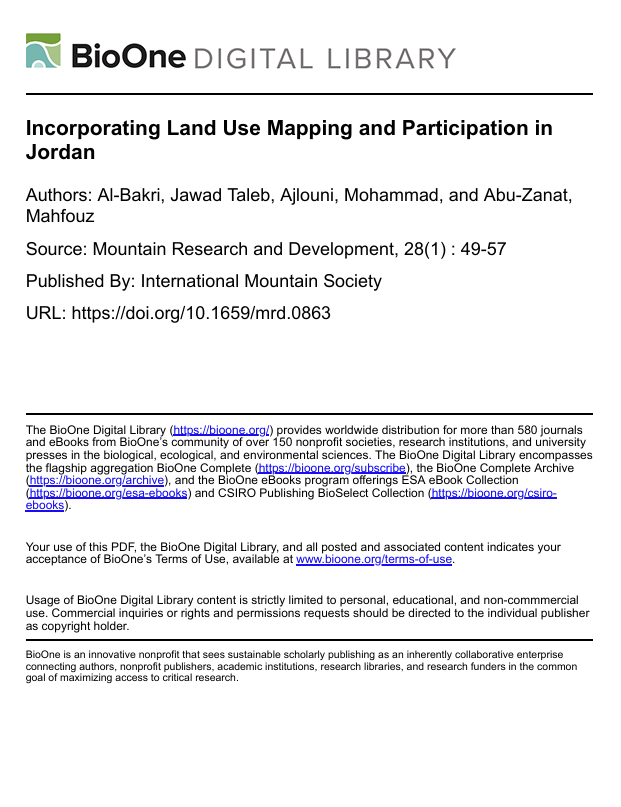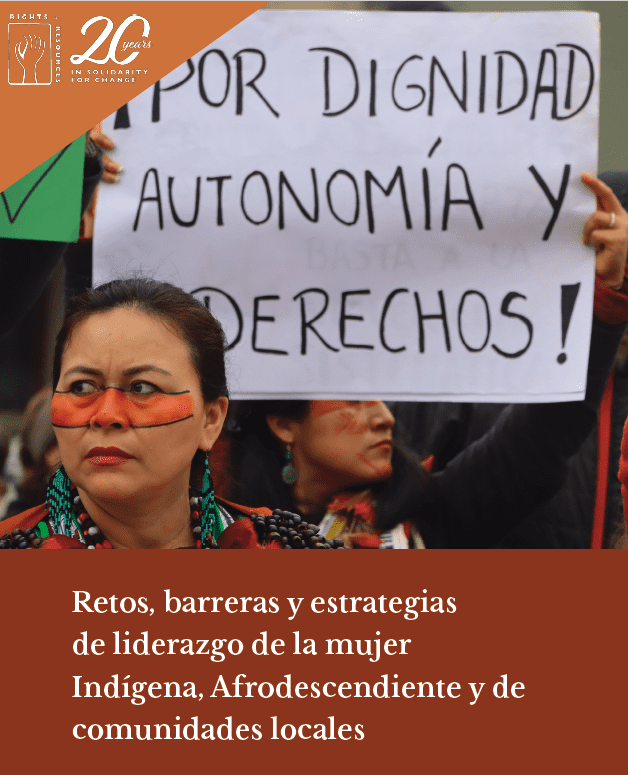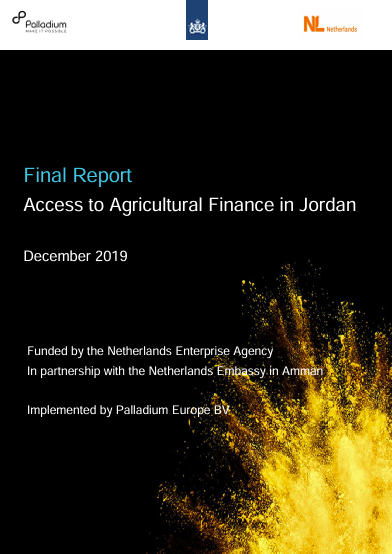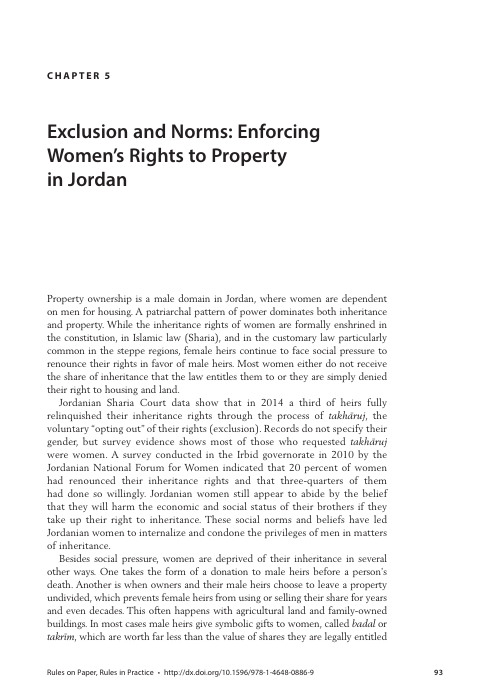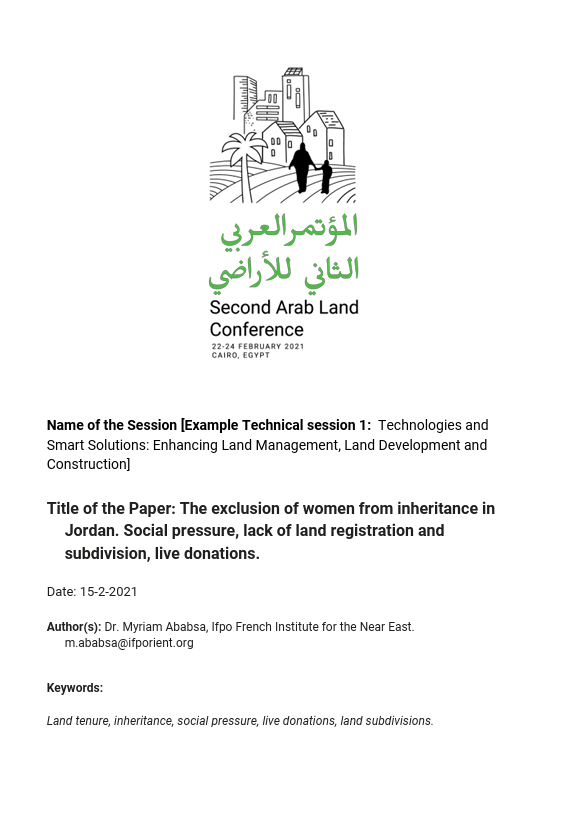Test
Land Portal Annual Report 2024
Land degradation causes and sustainable land management practices in southern Jordan
Jordan is one of the world's most water-deficit countries with only about 4% of the total land area considered arable. As a consequence agricultural production is greatly constrained by limited natural resources. Therefore, a major challenge for the country is to promote the sustainable use of natural resources for agricultural purposes.
Incorporating Land Use Mapping and Participation in Jordan
In this study, analysis of land use and suitability maps for 2 contrasting mountainous ecosystems was used to identify areas where a change from existing to potential land use was required. A socioeconomic survey was carried out to select locations for implementing 2 land management packages with the full participation of farmers.
Retos, barreras y estrategias de liderazgo de la mujer Indígena, Afrodescendiente y de comunidades locales
Tras décadas de lucha, algunas mujeres de PI, PAD y de CL de Latinoamérica han alcanzado condiciones de igualdad y equidad en sus derechos, y han logrado que las organizaciones a las que pertenecen superen la violencia y/o la discriminación de género. Sin embargo, para muchas otras mujeres, estas barreras aún persisten.
Retos, barreras y estrategias de liderazgo de la mujer Indígena, Afrodescendiente y de comunidades locales
Tras décadas de lucha, algunas mujeres de PI, PAD y de CL de Latinoamérica han alcanzado condiciones de igualdad y equidad en sus derechos, y han logrado que las organizaciones a las que pertenecen superen la violencia y/o la discriminación de género. Sin embargo, para muchas otras mujeres, estas barreras aún persisten.
Access to Agricultural Finance in Jordan
The Palladium research team visited Jordan in October 2019, and hosted roundtables in Amman and the Netherlands to collect and validate the collected information.
Jordan Country Report 2024
This report’s assessment period, from February 1, 2021 to January 31, 2023, has been marked by Jordan’s recovery from the pandemic and a return to pre-pandemic norms in both the economic and political spheres. On the economic front, GDP grew by 2.2% in 2021 and an additional 2% in 2022.
Land , Housing and Property in Jordan
Land is one of the most valuable assets in Jordan. Rapid population increase, uncontrolled urban sprawl, land degradation and desertification, changes in consumption patterns, and the additional pressure caused by the influx of refugees have strained Jordan’s land resources, including water, pastures, and ecosystems.
Exclusion and Norms: Enforcing Women’s Rights to Property in Jordan
Property ownership is a male domain in Jordan, where women are dependent on men for housing. A patriarchal pattern of power dominates both inheritance and property.
The exclusion of women from inheritance in Jordan. Social pressure, lack of land registration and subdivision, live donations.
A patriarchal pattern of power dominates both inheritance and property in Jordan. This pattern affects women, but also the youth - which is much less studied. While the inheritance rights of women are formally enshrined in the constitution, in Islamic law (Sharia), female heirs continue to face social pressure to renounce their rights in favor of male heirs.




